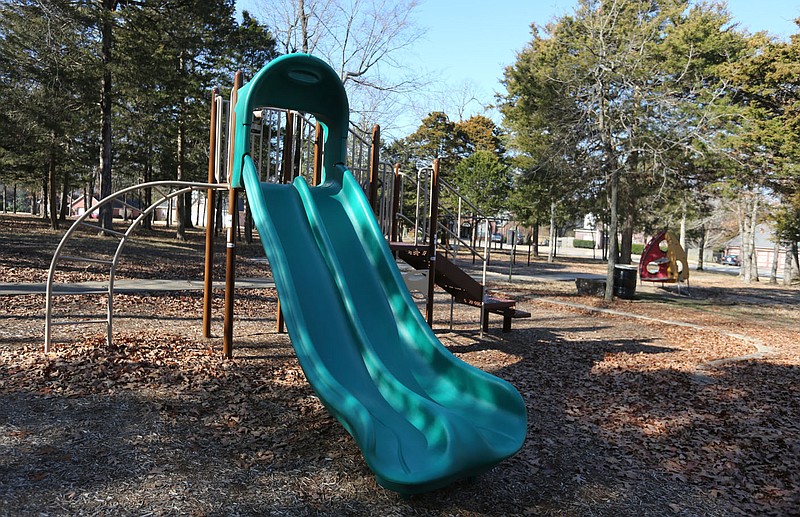FAYETTEVILLE -- The park board needs to decide whether to keep the city's decades-old ordinance giving residential developers a choice between dedicating land and paying a fee, or opt for a fee alone, board members discussed Monday.
Since 1981, the city has given any developer of 24 or more new residential units the option of dedicating land to use as a park or to pay a one-time fee instead. The amount for the fee is based on a formula using the land value per acre, park acres per person and number of people living in a unit.
The rate is $1,089 per unit for a single-family development and $952 per unit for multifamily. The park board reviews the fee structure every two years, and most recently changed it in 2019 with City Council approval. The money goes toward park development.
City Attorney Kit Williams joined the park board during its Monday meeting, held online on Zoom. The city's parkland ordinance was grandfathered in 2003 into a state law dealing with developmental impact fees, such as the cost of a city's ambulance or fire station to serve a new neighborhood.
The city can only reject land offered by a developer as a park if it's encumbered with electricity lines and poles, if it's too small to use as a park or if it's hazardous or unsafe, Williams said. Those conditions, however, are listed in city code and not included in state law, so the park board has to be careful when evaluating those criteria, he said.
The park board has nine criteria it has used to guide decisions on accepting park land and a handful of other considerations for trails. Criteria include whether the land lies in a floodway, its proximity to other parks and how it relates to the city's overall strategic plan for parks.
Williams said the board can ask a developer to voluntarily follow the guidelines, but legally, has to accept land if it usable as a park. Conversely, if a developer opts for the fee, the board has to accept.
Parks board member Stephen Sheely said generally developers are cooperative, but the antiquated ordinance leaves open the possibility of the city taking on responsibility for land not at all beneficial to the park system.
Member Keith Tencleve said he couldn't think of land that has come before the board that could have been rejected under the narrow requirements of the ordinance.
"This puts all the power in the hands of developers," he said. "We essentially have to take anything."
Parks Director Connie Edmonston said it may be time to move on from the ordinance. In 1981, the city had few parks, and it made sense to regularly accept land. The map has since filled out, and money to put to existing parks is more valuable, she said.
"If we had the money, we would buy some really nice land," Edmonston said. "One good thing about having money is it creates partnerships."
Williams said updating the ordinance would require a study. Park fees would be included among the city's other impact fees. The city would likely no longer require a developer to choose between donating land or paying a fee, and could only require the fee, he said.
However, the park board could still negotiate with a willing developer using its guidelines, Williams said.
In other business, the city has launched a website for the public to help name the planned cultural arts corridor downtown.
Environmental Director Peter Nierengarten said the cultural arts corridor name was meant as a placeholder. People can go to http://fayettevillecac.com to help nominate a name.
The website includes an exercise to help inspire selections. A round of narrowed-down selections will be unveiled in March, with an announcement on the name likely in April or May, Nierengarten said.
Voters approved a $31.6 million bond issue in April 2019 to build the arts corridor, which will turn the parking lot west of the Walton Arts Center into a civic greenspace, involve road and trail improvements and include a new parking deck northwest of Dickson Street and West Avenue.
More News
Web watch
For more information on Fayetteville’s parkland dedication ordinance, go to:
Stacy Ryburn can be reached by email at sryburn@nwadg.com or on Twitter @stacyryburn.
